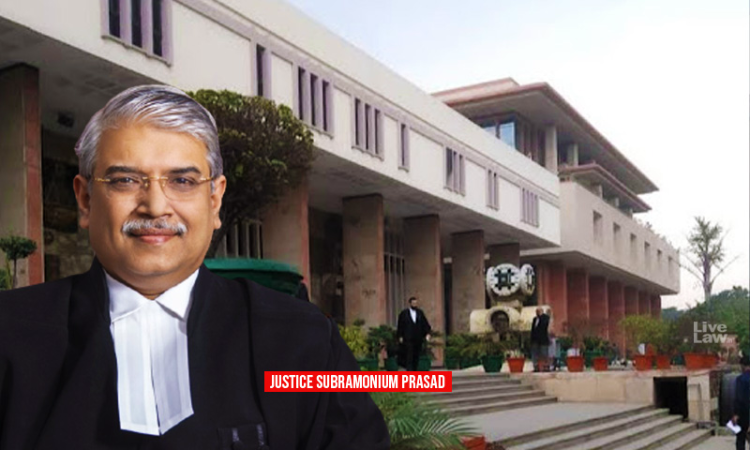Delhi High Court Upholds ICC Verdict Finding DU Professor Guilty Of Sexual Harassment
Nupur Thapliyal
26 July 2025 5:00 PM IST

The Delhi High Court has rejected a plea filed by a professor of the Delhi University against the findings of the Internal Complaints Committee (ICC) holding him guilty over the allegations of sexual harassment made by various students and an alumnus, as well as the decision to compulsory retirement him.
Justice Subramonium Prasad observed that the Executive Authority gave a fair hearing to the professor and its failure to pass a speaking order did not pass the test of prejudice.
The Court rejected the plea filed by Prof. Amit Kumar against whom four complaints were received in 2018- three from students and one from alumnus. The complaints pertained to the sexual innuendoes or advances of the professor by way of Facebook Messenger and WhatsApp chats sent to the complainants. The complaints were forwarded to the Internal Complaints Committee (ICC).
In February 2018, the professor was restrained from entering the campus and was asked to go on leave. He denied the allegations, saying that the complainants misunderstood his intentions and there was a conspiracy against him by the students and the Department of Political Science.
The proceedings were concluded by ICC in July 2018. The evidence of the complainants and their witnesses stood concluded in May 2018 and the delay thereafter solely occurred owing to the conduct of the professor.
The ICC found the four charges of sexual harassment proved against the professor and found him guilty of misconduct. In a unanimous decision, the ICC recommended his compulsory retirement.
The Governing Body then asked the professor to appear before it and a show cause notice was issued to him asking as to why punishment of compulsory retirement should not be imposed on him.
The Governing Body, in October 2018, accepted the recommendations of the ICC and resolved to compulsorily retire the professor with immediate effect, after hearing his oral submissions. The decision was approved by the Vice Chancellor.
Before the High Court, the professor challenged the constitution and procedure of the ICC and Enquiry Committee, as well as the findings contained in the ICC Report. It was his case that the authorities, including the Governing Body, Vice Chancellor as well as the ICC, failed to follow the principles of natural justice.
Dismissing the plea, Justice Prasad observed that the case was one where students made complaints against their own teacher, adding that in Indian social ethos, students generally refrain from taking such step, “as we are taught to hold teachers in a very high regard.”
Perusing the contents of the WhatsApp and Facebook messages as well as other material against the professor, the Court said that the same were so profane, that it was not inclined to reproduce them in the Judgment.
“Teachers shape the career of young aspiring students for a better future. The act of sexual harassment done by these very teachers, who are considered as our guides and mentors, against young female students who have just attained majority, has a deleterious effect on the psyche of such students. It is often seen that female students are reluctant to report of such misconduct and many students even drop out of colleges as they face ridicule and humiliation,” the Court said.
It added that while the authorities must be careful that the POSH Act is not abused and innocents are not punished, but at the same time, the essence of the legislation cannot be sacrificed at the altar of procedural irregularities.
The Court said there was no procedural violation in ICC constituting Enquiry Committee as the same met the criteria stipulated under Rule 7(7) of the POSH Rules.
Furthermore, the Court said that the procedure adopted by the ICC was neither unreasonable nor arbitrary, as the same finds its roots in the procedure curated over time though guidelines, regulations and laws laid down through judicial pronouncements.
It also concluded that the professor was granted more than sufficient opportunities to present his case before the Governing Body and that there was no error or violation of the principle of the audi alteram partem.
“Thus, it is clear that even for the purposes for approval, the Respondent No.1 University, was in receipt of all the relevant material including a representation from the Petitioner, and there is no occasion for this Court to interfere with the same. Since all the issues raised have been answered against the Petitioner, the present Writ Petition is dismissed,” the Court said.
Title: DR AMIT KUMAR v. UNIVERSITY OF DELHI
